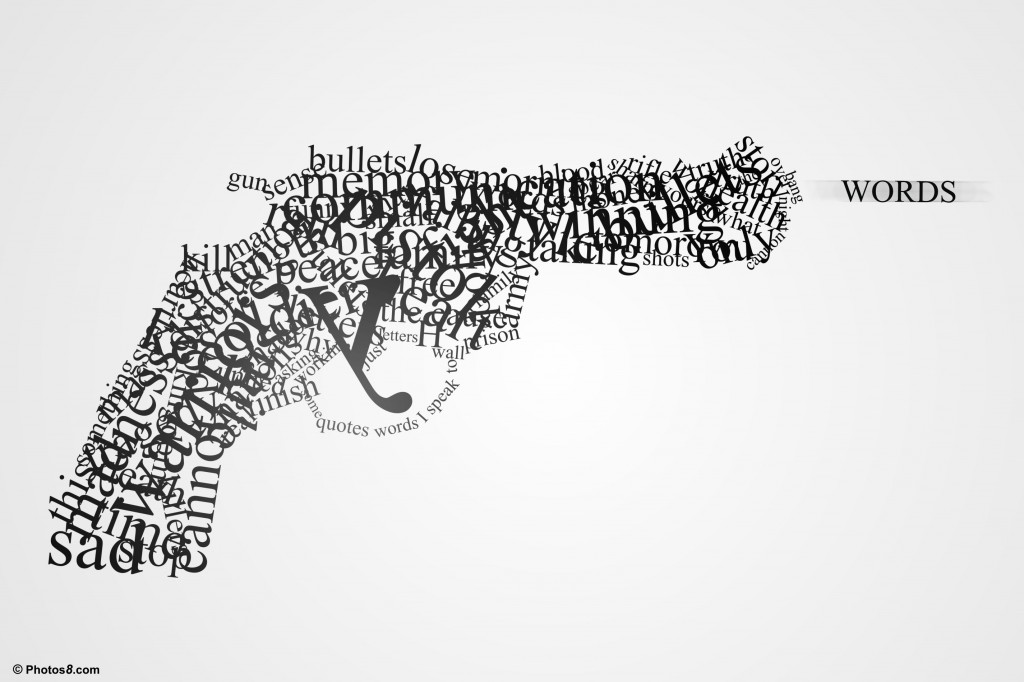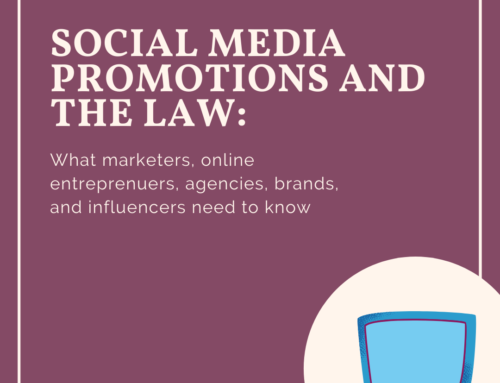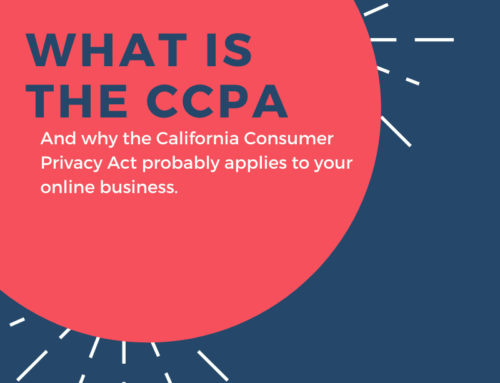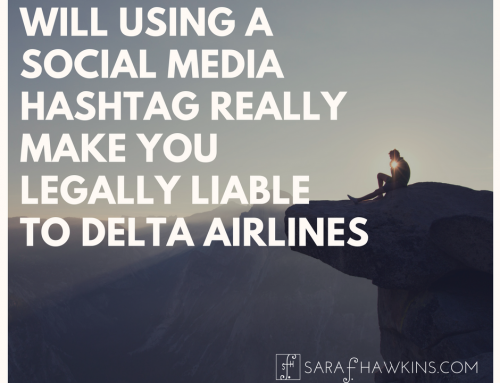
Remember when you were a kid and your mom or dad told you “If you can’t say something nice, don’t say anything at all.”? And then you rolled your eyes (with your head turned so they couldn’t see you) and under your breath called your brother a jerk? OK, maybe it was just me. But, in a hypothetical sense you know what I’m talking about, right? Online Defamation
As we grew up we learned about constructive criticism, sharing our opinion even when it was against the grain, providing honest input and playing devil’s advocate. We figured out (well, most of us) that saying mean things about other people, whether or not they were true, often created more problems. And sometimes we were the one having to deal with being called things that we didn’t like. Online Defamation
In the online world, it’s not just bloggers that are potential targets for the words they write. With Facebook, Twitter, location-based apps and online communities, anything your write online could be the basis of someone’s wrath. No longer is it just websites focusing on celebrity gossip that are catching the discerning eye.
And as much as we think that what we say online is ‘Free Speech’, most of it is not protected by the First Amendment. The First Amendment only protect individuals against the US Government trying to ‘oppress’ your freedom. Bloggers, as well as people on Twitter have been sued by individuals and businesses for the words they’ve put out in the internets.
Generally speaking, defamation is a false statement about someone that causes them harm. It is not limited to live people and can apply to corporations and their products or services as well. Defamation of the products or services of a business or company has its own special name, trade libel. When this type of communication happens on the web and in apps, we’re specifically talking about online defamation.
Defamation has two categories: Slander and Libel. Slander is defamation in a non-fixed medium. The easiest way to remember slander is that it’s spoken and both begin with an ‘S’. Libel is defamation in a fixed medium. Libel is written, whether in traditional magazines or newspapers or in online publications.
What is defamation?
Defamation is the publication to one other than the person defamed of a false statement of fact that is understood as being of or about the person and tending to harm the reputation of the other person. If the targeted person is a public figure (a legally defined word) they must prove actual malice by the statement maker.
But it’s the truth!
Just as my brother used to tell my mom that’s it’s OK for him to call me ugly because it’s the truth, truth is one of the most significant defenses to defamation. Keep in mind, though, that it may be expensive, time consuming and difficult to prove something is, in fact, the truth.
Not identifying the person by name
Just because you don’t name the person by name doesn’t mean they can’t be identified. If you provide enough information about the defamed person it’s easy for enough people to identify them. For example, referring to someone on your Facebook as ‘my neighbor’ may sufficiently identify them. On a blog, if you can identify a person sufficiently so that other know who you’re talking about, maybe not even naming them on your blog but linking to their blog, twitter or even a flickr image.
I was just stating my opinion
As the requirements state, it must be a false statement of fact. In context, if the statement can be determined to be your opinion then it can’t be defamation. For most people, in the online world we often preface or follow our opinion with a variety of acronyms such as IMO (in my opinion), IMHO (in my humble opinion) or even FWIW (for what it’s worth). However, just by saying it’s an opinion doesn’t mean it is.
Who is a public figure?
The law treats people in the public eye differently. If the one being defamed is a public figure they must prove that the one saying has done so with actual malice. Actual malice means that there is knowledge of the falsity or reckless disregard for the truth. It is a very high threshold. And it is set very high because courts want people to engage in dialogue without constant fear of repercussions. A public figure is a legal term used to describe a person who has a continuous and powerful influence on a public matter.
People often mix up ‘public figure’ with celebrity. A celebrity, or even a very popular blogger, may be a public figure in the general sense in that they are very public about their goings on. However, in the legal sense they may not be a public figure. It is very fact specific. And there are many instance where very private people have been thrust into the public limelight and have become public figures, for example the pilot who landed the plane in the Hudson a few years ago.
Is there insurance available to protect me or my business?
There are a growing number of insurance companies providing media liability coverage for online libel claims. For the average blog the premium is too expensive. However, if you think you may need this type of insurance the Citizen Media Law Project has information on obtaining media liability insurance.
It is also possible that homeowners or an umbrella liability insurance will provide coverage for media liability. Check with your insurance agent if you think you might need to rely on that coverage. In many instance it will exclude any type of business liability and if you’re a blogger that is likely to mean it won’t cover what you post on your blog or blog related online media outlets.
Conclusion
Every day millions of people say negative things about other people. Only a small fraction of those statements would rise to the level of either slander or libel. I’m sure you’ve read something within the last 48 hours that made you stop and think that maybe the writer shouldn’t have said that.
But just because it’s not at the level of defamation doesn’t mean it’s not hurtful. Nonetheless, knowing that you have a large umbrella of protection is what keeps most of us creating content. It’s not to say that bullying is OK or that being rude and obnoxious is acceptable. However, to know that you can write openly will continue to encourage people to share and push boundaries.
For blogger, especially, knowing that your honest opinion in a product review would be a defense is significant. To know that you can call someone out for foolish behavior is important. And, in general, to know that our right to rant, rave and complain is afforded great protection will keep the interwebz going.
It doesn’t mean someone you’ve ticked off won’t sue you. But what it does mean is that if that does happen you’re prepared and equipped to put up a fight. There are many cases of defamation based on online statements, however most end up getting dismissed. Still, I am a firm believer that sometimes it is better to say nothing at all. Because, really, I may be in the right but dealing with foolish people in court is no fun. And no matter how right you are it’s still your time and your money.
What are your thoughts about what is said online? Will you change your way of writing now that you know more about defamation?
Note: Just because it’s not defamation doesn’t mean it is not another crime (or tort) such as Cyber Bullying or Cyber Stalking.






Great information to keep in mind ALL the time while blogging and interaction on social medias!
Such a great blog! You are a plethora of information! Stopping by from #commenthour
Hello Trisha,
Thank you for visiting. Glad you found the information helpful.
Sara
[…] UPDATE 2: In our comments section, a real live lawyer says: The blacklist is quite unlawful. Not only is it a criminal defamation violation under the Criminal Code, but the Labor Standards Act forbids employers to share blacklists. These teachers ought to complain to the prosecution. Chris Backe in South Korea also warns against starting a blacklist here. I’m on the fence. A single blog post or newspaper article on a company or product, explaining why it is bad, a post with supporting evidence offered, seems appropriate. A wide-open list of products or companies that a similarly wide-open variety of authors dislike, for whatever reason offers less valuable information. In short, blacklists are as useful as your knowledge of the person writing the information – caveat lectorem. Another concern I have is with people charged-but-not-yet-convicted of various crimes. At the Asian Correspondent, Nthan Schwartzman translated an article about a (Korean) teacher molesting students. At first, I wanted to know the name of the teacher especially as the parents wanted the teacher transferred. If he is transferred, I really want to know his name. Then, aware that even the suspicion of such a crime is poison, I realized that no one wants the name published until after a trial – at which point I hope they do publish it and not merely transfer the teacher. I guess that although I do not like Korea’s libel laws, they certainly are defensible. Play differently, lose differently. ——–Busan Haps article on Libel, by Surprises Aplenty——- If you can’t say something nice about someone, don’t say anything at all. -Thumper’s Mom A commenter at KoreaBridge wrote: “if you have an understanding of the American Constitution, you will have heard of freedom of speech. He is quite free to write whatever he wants…” Thinking you have the legal rights freedoms here you would have if you were elsewhere is a good way get in trouble. Indeed those legal freedoms, as relate to libel, aren’t so broad as you may think, in Korea or elsewhere.A friend who has recently returned to Canada after more than a decade here adapted quickly to local libel laws by taking a toy store to task. It appears he has since taken his post down (I think this was routine, he typically removes personal content after a week or so) but in it, he named the store and its specific location -just outside of Toronto with the recommendation that people not shop there.I believe his post contained useful information, was honest, the facts were correct and specific and was written to help other shoppers. If he posted it here in Korea, he could have faced a fine and possible deportation.Generally, a written work is libellous if it defames someone identifiable and living, is given to people other than the victim and the victim reputation or income suffers. (Libel defined. And here.) […]
[…] the company says or does, or former employees who may take a professional dispute public. While defamation law varies from state to state, there are many key elements that are consistent across the country. […]
[…] defamation and invasion of privacy are important consideration for certain types of authors. Both defamation and invasion of privacy are based on how facts are used, changing language to make the facts appear […]